3
Hyponatremia in the Elderly: Risks, Prevention, and How to Manage It
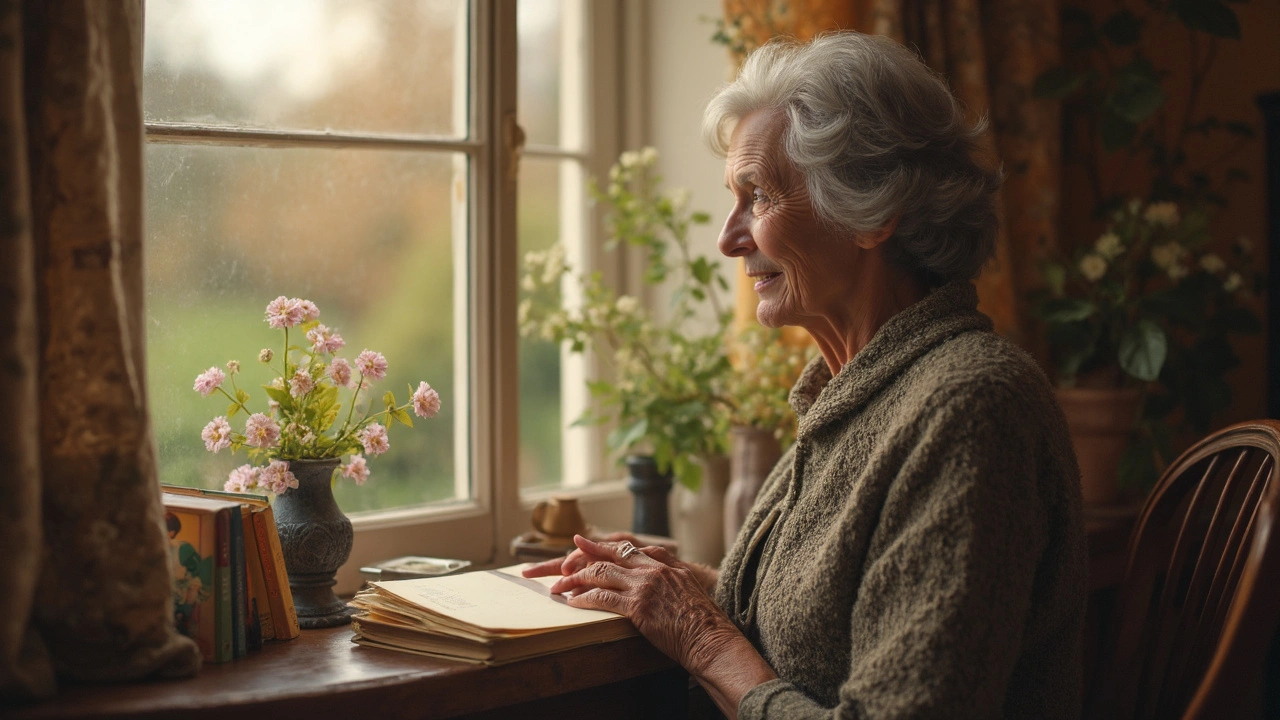
Alright, let's break it down: hyponatremia is when your sodium levels are too low. And for our older friends, this can get tricky. You might wonder, why does this even matter? Well, sodium is super important for keeping fluids in check, transmitting nerve impulses, and helping muscles do their job. When levels drop, especially in the elderly, things can get pretty serious.
First, let's talk about why seniors are more prone to this. As we age, our bodies don't balance fluids as efficiently, and the medications many older adults take can throw sodium levels out of whack. Plus, they might not feel thirsty as often, leading to all sorts of misadventures in hydration.
- Understanding Hyponatremia and Its Impact
- Why Are the Elderly More at Risk?
- Symptoms to Watch For
- Preventing Hyponatremia
- Managing the Condition Effectively
- The Role of Diet and Lifestyle
Understanding Hyponatremia and Its Impact
So, what's the deal with hyponatremia? It's when the sodium in your blood dips too low. Sodium is a rock star when it comes to controlling water in and around your cells. It helps muscles work right and nerves send signals smoothly. When sodium is low, your body is basically screaming for balance.
Why should you care? For many, hyponatremia shows up as mild symptoms like feeling tired or just off. In severe cases, though, it can lead to confusion, seizures, or worse. Not cool, right?
Now, the elderly crowd has it a bit rougher. Due to age-related changes, their kidneys aren't as snappy at conserving sodium, and they're often on medications that make sodium go on a downward spiral. Plus, they sometimes drink too much water without enough salty snacks, thinking it's the healthy way.
Let's not ignore the fact that roughly 15-30% of hospitalized elderly folks have this condition, impacting their recovery big time. That's a pretty significant number!
Getting a handle on hyponatremia means recognizing it early and correcting those sodium levels before things go haywire. So, knowing the tiny signs could save a big hassle down the road!
Why Are the Elderly More at Risk?
Getting older isn't all sunshine and roses when it comes to health, and hyponatremia is a perfect example of why. So, why exactly do our older loved ones face a greater risk of this condition? It's like a perfect storm of body changes, medications, and sometimes even lifestyle.
First up, the body simply doesn't work like it used to. With age, the kidneys can become less effective at conserving sodium. It's like trying to carry water in a leaky bucket! This inefficiency means older folks need to keep a closer eye on how much sodium they get.
Then there are medications, which can be a major player here. Many older people are on meds like diuretics or antidepressants, and these can lead to an imbalance in fluids and sodium. It's a bit like playing a game of Jenga with all these meds—pull the wrong block, and the balance can tip, leading to hyponatremia.
Let's not forget about the perception of thirst. As people age, that keen sense of thirst dulls a bit. This means they might not drink enough water, especially during hotter weather, leading to dehydration. And guess what? Dehydration can trigger low sodium levels.
Additionally, lifestyle factors should be part of the conversation. Sometimes the diets of seniors aren't the best, perhaps due to difficulties in cooking or financial constraints, leading to low sodium intake from food.
Understanding these risks can really help with prevention. Simple things like regular checkups and reviewing medications with a doctor can make a significant difference. Keeping active and maintaining a balanced diet is crucial—they aren't just old sayings; they're practical advice!
Symptoms to Watch For
Catching hyponatremia early can make a big difference, especially in the elderly. So, what signs should you keep an eye out for? Well, they can be a bit sneaky because they're easy to confuse with other aging-related issues.
For starters, watch out for nausea or vomiting. Feeling a bit off or having tummy troubles can sometimes be the first clue. Also, headaches or a feeling of fuzzy thinking—stuff like confusion or getting easily distracted—might raise some red flags.
Now, these might not seem like panic-worthy symptoms at first. But if left unchecked, they could lead up to more serious things like seizures or, worst case, coma. Not to scare you, but it's good to know when it's time to alert someone. Dr. Samuel Levine in the Journal of Elder Health says,
"Recognizing the initial signs of hyponatremia in older adults helps in timely intervention, potentially preventing severe complications."
Older adults may also experience tiredness or a lack of energy. If someone you're caring for suddenly doesn't feel like doing their usual activities, it might be time to have a chat with their doctor. And, check if they're overdoing it with drinking water—yes, you heard it right, drinking too much can actually make things worse.
- Tummy troubles like nausea or vomiting
- Headaches or mental fog
- Sudden tiredness or low energy
- Unusual mood changes
These symptoms can hit hard, so don’t just shrug them off. If you notice any of these, it might be smart to get sodium levels tested. Avoiding bigger health scares can be as simple as catching these early signs and acting fast!
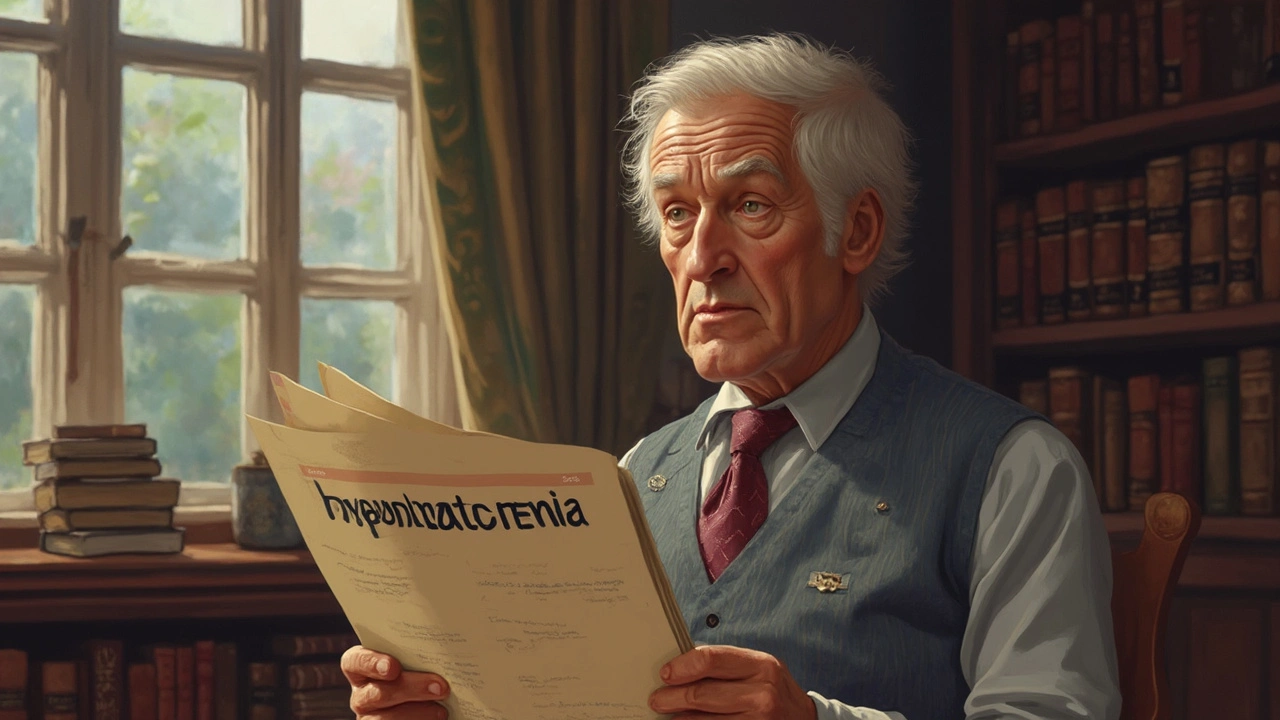
Preventing Hyponatremia
So, how can we keep hyponatremia from becoming a party crasher in the lives of our older loved ones? It's all about being proactive. First off, it's key to keep a close eye on fluid intake. Drinking too much water sounds healthy, right? Well, not when it dilutes sodium levels in the body. Aim for a balanced fluid intake that meets an individual's needs without overdoing it.
Next up, it's critical to look at medications. Certain meds, like diuretics commonly used for high blood pressure, can exacerbate hyponatremia. This calls for regular check-ins with doctors to review and adjust prescriptions as necessary. They might recommend blood tests to keep tabs on sodium levels, especially if medication changes are needed.
- Hydration Awareness: Encourage a regular drinking schedule that doesn’t solely rely on thirst cues, which can be less noticeable in the elderly.
- Salt Intake: Sometimes, people might need a little more salt in their diet, under a doctor’s guidance, of course. Pick healthy sources like broth or lightly salted foods.
- Monitor Conditions: Keep an eye on chronic conditions, like heart or kidney issues, since they can contribute to the risk of hyponatremia.
Also, let's not forget the importance of a well-rounded diet packed with all the essential nutrients. Ensuring adequate consumption of proteins and calories can prevent malnutrition, which might compound the risk for this electrolyte imbalance.
Protecting seniors from hyponatremia is all about smart strategies. A bit of monitoring, some medical guidance, and a splash of common sense can go a long way in maintaining those all-important sodium levels.
Managing the Condition Effectively
Alright, when it comes to keeping hyponatremia in check, consistency is key. The first thing to do is to work closely with a healthcare provider. They'll help tailor a management plan that suits the lifestyle and health of the elderly person in question. Regular check-ups ensure that sodium levels are monitored and adjusted as needed.
Next up, if medications are part of the picture, it’s important to know that some can mess with sodium levels. Meds like diuretics, antidepressants, and certain pain relievers could contribute to the problem. Always chat with the doctor to see if it’s time to adjust dosages or look at alternatives that have less impact on sodium balance.
Prevention is better than cure, right? So, staying hydrated with the right fluids is essential. Not all liquids are created equal. Water is great, but excessive water intake without sodium intake can worsen hyponatremia. Balancing fluid intake with adequate dietary sodium is crucial.
- Include moderate amounts of salty foods like soups, broths, and salted nuts, as advised by a doctor.
- Avoid excessive alcohol, which can affect hydration and electrolyte balance.
- Know the signs of low sodium like nausea, headaches, confusion, and be ready to act fast.
In certain cases, the treatment might involve sodium supplements or intravenous fluids, especially if hyponatremia is severe. But that’s typically under a doctor’s supervision. Don't forget, balance is everything, and prevention involves a mix of good habits and proper medical guidance.
The Role of Diet and Lifestyle
When it comes to managing hyponatremia, what we eat and how we live play a huge role. A balanced diet isn't just about calories and vitamins; it's about making sure the body gets the right amount of minerals like sodium. But don't go overboard with the salt shaker just yet! Balancing sodium is key.
First off, staying hydrated is crucial, but it's all about doing it right. Encourage older folks to sip fluids regularly throughout the day rather than guzzling large amounts at once. Water is great, but sometimes a mix of fluids like broths or sports drinks with electrolytes can help maintain sodium levels too.
Let's talk food. Including foods naturally rich in sodium, like cheese, olives, and pickles, can contribute to maintaining balance—just in moderation. And don’t skip leafy greens and whole grains; they provide lots of nutrients that support overall health.
It's not only about what to eat but also how lifestyle fits in. Encourage daily activity, even light exercise like walking, which helps the body regulate fluid levels better. Plus, it’s good for mood and energy.
| Tip | Benefit |
|---|---|
| Include potassium-rich foods like bananas and sweet potatoes | Helps balance electrolytes |
| Limit excessive alcohol intake | Prevents dehydration |
| Regularly monitor sodium intake if advised by a doctor | Keeps hyponatremia from sneaking up |
Lastly, seniors should have regular check-ups, especially if on medications affecting sodium. It’s always smart to chat with a doctor before making big dietary changes. This combo of sensible eating and healthy living is a solid step towards managing hyponatremia effectively.
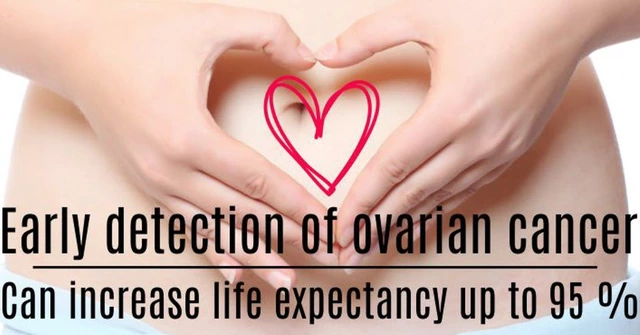
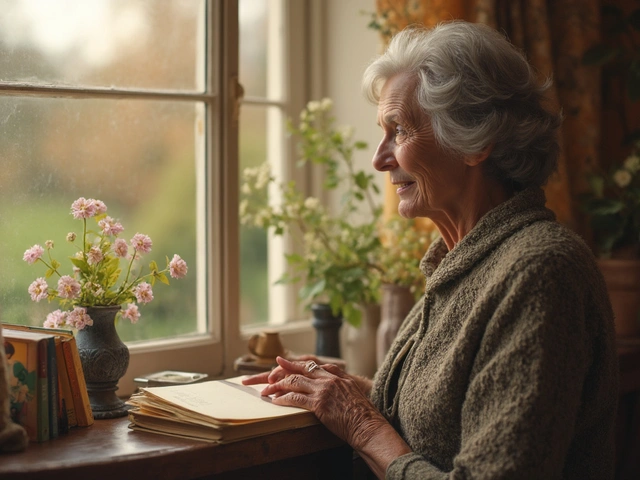
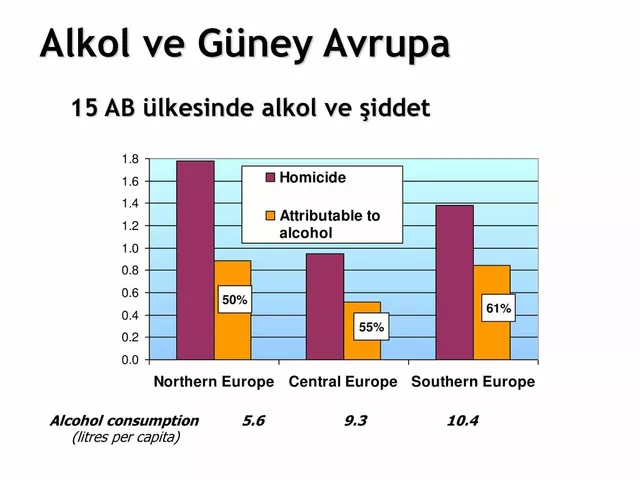
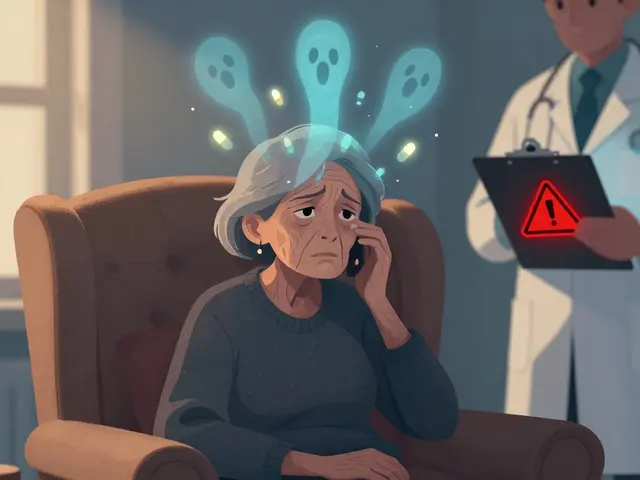
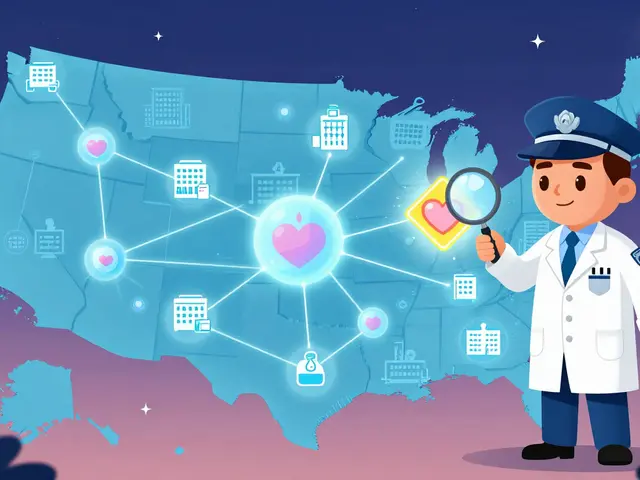
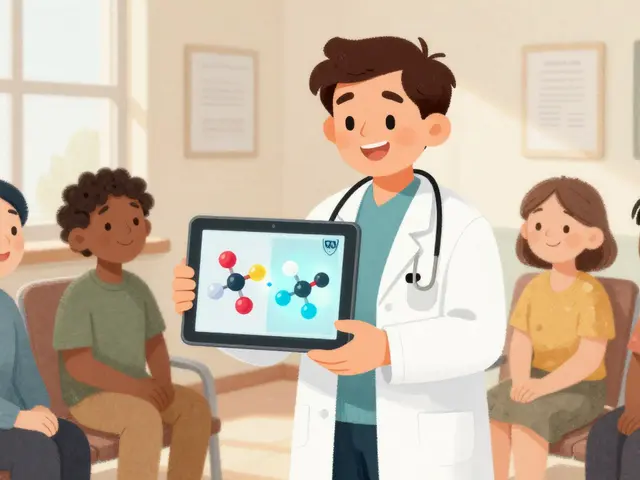


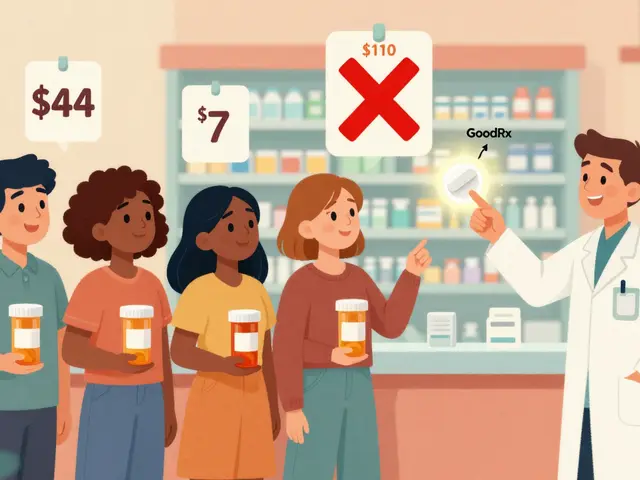


Adam Baxter
July 18, 2025 AT 03:15Hyponatremia is really one of those sneaky issues, especially for the elderly. When you think about it, sodium levels influence so many bodily functions, so the stakes are high.
Early recognition of symptoms like confusion or fatigue can be a lifesaver. This article nails it by stressing prevention and management instead of just treatment.
Medications that mess with electrolyte balance are often overlooked culprits. We should all be more vigilant about that.
One thing I'd add is making sure hydration is balanced—not too much water that dilutes sodium too much. That's a tough line to walk sometimes.
Overall, excellent insights here. Worth sharing with anyone caring for older adults.
Keri Henderson
July 18, 2025 AT 04:15Completely agree with your point on early symptom recognition. Seriously, catching confusion or unexplained fatigue early can change outcomes dramatically.
I'm also big on educating caregivers. They need to know the risks of certain meds and the importance of checking sodium levels routinely.
This piece is solid but could even push more on how lifestyle changes might help in prevention—like monitoring diet and fluid intake carefully.
Prevention is always better than scrambling to fix a crisis with elderly patients. The article gives good practical tips, which care providers should definitely keep handy.
If we all step up our game in this area, fewer elderly folks would suffer unnecessary complications.
elvin casimir
July 18, 2025 AT 05:15Look, this whole hyponatremia thing is often misunderstood or overlooked, especially in geriatrics, and that’s just irresponsible. Folks need to get their facts right and stop ignoring straightforward lab results.
There’s way too much room for error with doctors not pushing for proper electrolyte panels or mismanaging medications that interfere with sodium levels.
Plus, whoever wrote the article keeps tiptoeing around the obvious fact—elderly bodies cannot handle excess fluids or medications like younger ones, and that causes all these problems.
It’s about proper diagnosis and not glossing over symptoms like confusion. Those are red flags screaming for action, not just mild recommendations.
Patients and caregivers need to get serious about this or the outcomes will keep being poor.
No sugarcoating it.
Steve Batancs
July 18, 2025 AT 06:15I appreciate the seriousness of this topic. Hyponatremia has potential implications beyond just fatigue; cognitive decline and fall risks escalate quickly in the elderly.
The article’s medical explanations are quite precise, and the recommended strategies for monitoring medication and fluid intake are critical.
It’s clear that adhering to correct clinical protocols can minimize these adverse events.
Still, I think the healthcare system needs to improve communication between specialists and primary care providers to catch these issues before they worsen.
Better multidisciplinary approaches could make all the difference.
Prevention has to be a coordinated effort, truly.
Ragha Vema
July 18, 2025 AT 07:15This article feels like it’s barely scratching the surface. Hyponatremia is a lurking disaster for our elderly, and nobody talks about how pharmaceutical companies push meds that cause it just for profit.
There’s a whole conspiracy about over-medication in old age that’s driving these health crises.
It’s not as simple as balancing sodium. It’s systemic neglect and corporate greed festering in healthcare.
We need radical transparency and real alternatives for seniors to avoid this trap.
Otherwise, it’s just the same ol’ story of preventable suffering masked by medical jargon and ‘practical tips.’
Wake up people, this is a crisis!
Scott Mcquain
July 18, 2025 AT 08:15Factually, this article handles the medical nuances well. Hyponatremia is too often underestimated, and that must change.
The emphasis on recognizing early signs like confusion and fatigue aligns perfectly with best clinical practices.
But beyond medical management, ethical responsibility towards elderly patients remains paramount.
Educating families and caregivers more rigorously could prevent many mishaps.
As a community, we owe it to the older generation to ensure such preventable conditions do not disrupt their dignity or safety.
Comprehensive intervention strategies are essential and must be universally adopted.
kuldeep singh sandhu
July 18, 2025 AT 09:15Honestly, I believe hyponatremia is blown out of proportion in some cases. Sure, it can be an issue, but elderly people have multiple health factors affecting their well-being.
Focusing narrowly on sodium levels may distract caregivers and doctors from broader health management.
Also, recommending constant monitoring could make life overly complicated and stressful for families.
We should prioritize holistic views rather than hyper-focusing on single lab values.
Balance is key, and not every case demands aggressive intervention.
That said, practical advice in the article about medication awareness is sensible.
Mariah Dietzler
July 18, 2025 AT 10:15Thanks for putting this info together. It’s a good overview but kinda skimpy in details.
I wish there was more on how exactly to monitor sodium levels at home or which symptoms should prompt urgent care.
Also, some real life examples or case studies could help readers relate better.
Still, it's a decent start for people new to the topic.
Hyponatremia isn’t something many really understand, so articles like this do raise awareness.
Hope to see more in-depth follow ups!
Nicola Strand
July 18, 2025 AT 11:11While the article conveys important information, it tends to sensationalize the risks somewhat unnecessarily.
Older adults do face challenges with electrolyte balance, but proper medical supervision generally manages these effectively.
The piece should emphasize that not all electrolyte imbalances are emergencies and avoiding panic is critical.
Moreover, the guidance on prevention could be enhanced with evidence-based dietary and medication management strategies.
Simply fearing hyponatremia without understanding context risks unwarranted anxiety among caregivers.
A calmer, more measured approach benefits everyone involved.
Jackie Zheng
July 18, 2025 AT 12:11The way this article outlines the cognitive and physical manifestations of hyponatremia is quite well done. I particularly liked how it linked confusion and fatigue as early warning signs.
However, the language could be tightened up in places. For instance, it sometimes veers toward vague or repetitive descriptions.
Also, expanding the section about the impact of specific medications would be valuable to readers trying to navigate multiple prescriptions.
I think clarity and conciseness would elevate the piece further.
Still, it’s a helpful primer and encourages proactive management, which is essential for elderly care.
Hariom Godhani
July 18, 2025 AT 13:11I feel there's a glaring omission regarding social factors influencing elderly patients' sodium balance. Stress, isolation, and variable care quality all contribute significantly.
It’s not merely a biochemical or pharmacological issue but a complex interplay involving mental health, nutrition access, and caregiving resources.
We must advocate for holistic assessment protocols that incorporate psychosocial parameters alongside lab values.
Otherwise, we’re just treating symptoms, not root causes, which leads to repeated crises.
In my experience, individualized care plans acknowledging these dimensions drastically improve outcomes.
Don’t neglect these aspects when discussing hyponatremia in aging populations.
Keri Henderson
July 22, 2025 AT 18:00Jumping back in here because I wanted to add a bit more about medication management. Many elderly patients are on diuretics, SSRIs, or anticonvulsants that can predispose to hyponatremia.
Systematic review of medications by healthcare providers should be standard practice to reduce risk.
Caregivers should feel empowered to ask doctors about side effects affecting sodium levels.
It’s definitely not a one-and-done kind of monitoring; ongoing vigilance is necessary.
This article gives a good basic framework but let’s underline the active role families must play.